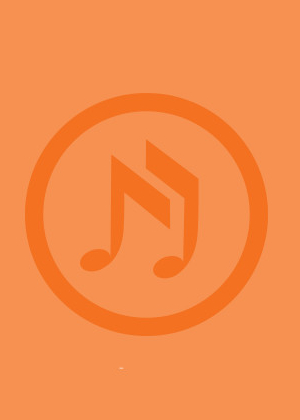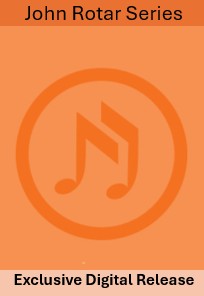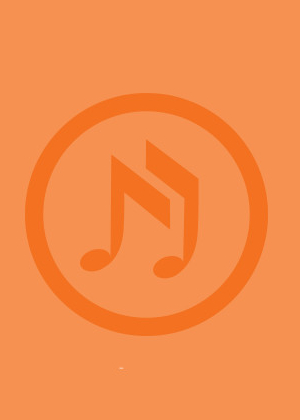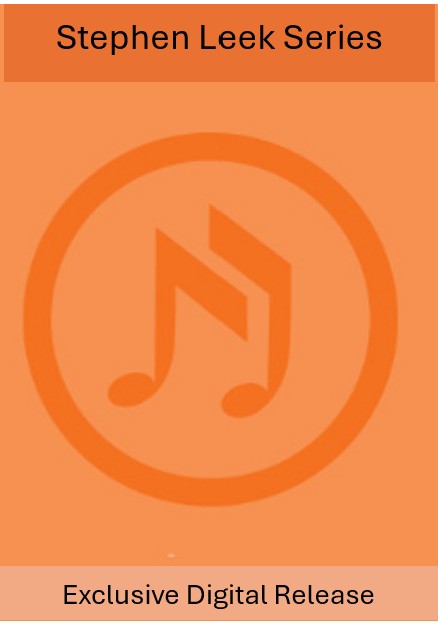| Title | Description | Composer | Voicing | |
|---|---|---|---|---|
 |
A Celtic Blessing |
New to Morton Music – digital copies are now available from RSCM Music Direct (UK) via the Other Countries link. The text, based on a traditional Celtic blessing, reminds us of the companionship of Christ and parallels our life’s journey with his. It is suitable as a doxology in church services, a blessing in Christian weddings, an act of dedication in baptisms and confirmations, a graduation blession or a moment of musical calm within a choral concert. This piece can provide comfort in times of personal stress and reassurance of the chosen journey through life. It ends with a beautiful and expressive setting of Amen, providing a moment of quietly confident affirmation. |
||
 |
A Festive Mass – Morton Music Exclusive |
New Release – One of John Rotar’s exclusive digital releases directly through Morton Music – email admin@mortonmusic.com for details. A Festive Mass is a sacred piece, suitable for low to intermediate choirs; duration is 10 mins. This piece was written in 2023 for All Saints Wickham Terrace and was performed numerous times as part of Mass at All Saints Wickham Terrace in 2023 and 2024. It was also performed by the Leichhardt Espresso Chorus in the Marrickville Town Hall, Sydney in June 2024. |
||
 |
A Red, Red Rose |
Graeme Morton’s A Red, Red Rose beautifully captures the romance of Scottish poet, Robert Burns’ text of the same title. Heart wrenching harmony and union of voice and strings evoke the poignancy of the text – And I will love thee still my dear, til all the seas gang dry. Til all the seas gang dry my dear, and the rocks melt with the sun; and I will love thee still my dear, while the sands o’ life shall run. A stunning piece for SATB voices with viola or violin and an excellent addition to your concert programme. Recording by the Brisbane Chamber Choir, directed by Graeme Morton. For your convenience, both the viola and violin parts are attached separately below, free of charge. |
||
 |
Adam Lay Ybounden |
New to Morton Music – digital copies are now available from RSCM Music Direct (UK) via the Other Countries link. Adam Lay Ybounden was written for The Lucian Singers and premiered at the Lessons and Carols service in 2011, with the composer as Director. The harmonic language pays homage to the ancient text, and the unison verses are chant-like before the bloom of the four-part refrains.’ |
||
 |
Agnus Dei (SATB) – Morton Music Exclusive |
New Release – One of Stephen Leek’s exclusive digital releases directly through Morton Music – email admin@mortonmusic.com for details. Agnus Dei is voiced for SATB a cappella and also SSA a cappella and can be paired with Leek’s “Sanctus” or sung as a stand-alone work. This setting is suitable for community and adult choir and pairs the traditional ideas of the Sanctus with more holistic ideas of the sentiments through texts by Australian write, Michael Doneman. The work draws on the traditional and contemporary notions of the Agnus Dei text. |
||
 |
And Loud We Sing And Long! |
New to Morton Music – digital copies are now available from RSCM Music Direct (UK) via the Other Countries link. This carol for Christmas manages to combine several opposing concepts. It mentions the traditional winter cold of Christmas and the summer heat which is part of the Australian Christmas experience. It also combines “scat” syllables in a style which is definitely Classical. This piece can be sung by any church or college ensemble which sings the standard repertoire of Christmas. Highly recommended!
|
||
 |
Andy’s Gone With Cattle |
Combines the traditional music and text of the Australian folk song Andy’s Gone With Cattle with the American folk song He’s Gone Away. Would suit a high school choir. |
||
 |
Araluen |
Another Australian work with that characteristic “Orlovich sound” – fresh, buoyant, vital and energized, but without weight and drama. It is always clean on the palate. The sample recording is by the National Youth Choir of Australia. |
||
 |
Arise my love, my fair one |
New to Morton Music – digital copies are now available from RSCM Music Direct (UK) through the Other Countries link. “Arise my love, my fair one” was written in 2012 for the service at St John’s Cathedral, Brisbane commemorating the 20th anniversary of the ordination of women to the priesthood in the Anglican Church of Australia. Flowing lines rise gradually towards the “fragrance” to which the text refers later, the blooming and blossoming of spring and the heralding of a new dawn, for the ministry of women and men. The middle section exhorts in dramatic homophony which gradually calms to release “fragrance”, and then repeats the ideas of the opening. The piece dies away, as if lover and beloved were disappearing into a mist (or a cloud of incense!).
The above recording features St Peter’s Chorale (2013), directed by Kathryn Morton. Or click here to watch a recording from St John’s Cathedral, Brisbane (2013), directed by Graeme Morton.
|
||
 |
As Wave Drives Wave |
AS WAVE DRIVES WAVE for choir, opus 115 (2021) by Andrew Schultz is an unaccompanied setting of memorable lines from Ovid’s Metamorphoses which he in turn drew from Pythagoras’ The Eternal Flux. The motion of the waves and their restless renewal is used as a metaphor for the certainty of perpetual change in the universe. The imagery in Ovid’s text is very beautiful and possibly even a little melancholy – or maybe granitic and philosophical and hence, sadness is irrelevant. In this choral setting the text has been adapted and personalised by the composer. This six minute piece is based on slow-moving harmony with sequences of overlapping and interlocking chords – as if unresolved suspensions were waves pushing waves. The work is an eight-part SATB choir setting but a lot of the work is really in four parts with pairs of voices starting in unison and then splitting apart. As wave drives wave was commissioned by the Brisbane Chamber Choir and their Artistic Director, Graeme Morton, and was composed in late 2021. They perform the work here at Christ Church North Adelaide, South Australia as a part of the Adelaide Chamber Singers Festival in October 2023. The video was recorded by Australian Digital Concert Hall. TEXT Since I have embarked on endless sea and set my sails, I now do know this: As wave drives wave, And each, pursued, Pursues the next. For what was before is left behind; And what was not, now is; And each moment is new. So time, flies on and follows, Always, forever new, And is always new. For neither the river Nor this tide can Can stop their flow. I say: There is nothing In the whole universe, Nothing that persists. For that which once was is now gone. Text is adapted by the composer from Ovid, Metamorphoses, Bk XV:176-198, “Pythagoras’s Teachings: The Eternal Flux.” Recording from the Brisbane Chamber Choir at the Adelaide Chamber Choir Festival, October 2023, via The Australian Digital Concert Hall.
|
||
 |
Ave Maria SATB |
New to Morton Music – digital copies are now available from RSCM Music Direct (UK) via the Other Countries link. A lyrical organ part introduces a simple soprano motive that opens into SATB passages rich with suspensions to add extra warmth to familiar, pastoral harmony. Imagine the feeling of motherly love that must have overwhelmed the virgin Mary when her cousin Elizabeth praised her! This Ave Maria was composed to evoke such feelings of love, gratitude, joy and glory. Let its self-saucing simplicity of means warm your soul and lift your heart – perfect for Advent, Christmas or a wedding.
|
||
 |
Black Swana (SATB) |
From the Torres Strait Islands north of Australia’s Cape York comes a beautiful song which depicts the progress of the ship Black Swana as it glides across the sea. Recording from “Great Southern Spirits” by The Australian Voices, released in 1994. An arrangement in treble voicing is also available: Black Swana SSAA |
||
 |
Breakers |
“Dolphins” are the subject of this highly energetic and rhythmic piece. |
||
 |
Bullocky-O |
A rollicking piece for a good high school choir. Bullock teams were an important form of early transport for heavy loads in Australia and each one was driven by a “bullocky” – a pioneer of great character. Requires a skilled pianist. Recording from “Our Time And Place” by St Peter’s Chorale, directed by Graeme Morton, released in 1997. |
||
 |
Ceduna |
This is the fourth title of Songs of Passage, the work which includes Ngana. “Ceduna” means “waterhole”. The music includes “boxes” of material for singers to work through as well as traditionally scored sections. Commissioned by Graeme Morton’s St Peters Chorale. |
||
 |
Christ the Lord is Risen Again |
New to Morton Music – digital copies are now available from RSCM Music Direct (UK) via the Other Countries link. An energetic and exuberant paean on an Easter text by sixteenth century German writer, Michael Weisse. The music bowls along in changing meters from 4/4 to 7/8, 6/8 and 2/4. The choral parts are often in rhythmic unison or doubled by the keyboard, so the music is memorable and easy to sing by choirs of all abilities. There is a great balance between the asymmetry of the rhythm and the repetition of sections. The accompaniment lies “under the fingers” and is easily accessible to most church accompanists. This piece is suitable for any part of the Easter season, but particularly for Easter Sunday. Its dance like character also makes performance possible in choral programs outside religious services.This simple and vital anthem solves the problem of finding Easter music that is vibrant and energetic rather than grand and triumphant. If your choir likes John Rutter’s Easter music you may also like this piece, which makes references in the keyboard part to the well-loved hymn tune commonly sung to the same text. This recent work by Australian composer/choral conductor Graeme Morton is an energetic and highly rhythmic setting of this familiar Catherine Winkworth translation of a sixteenth-century German hymn text. The frequently changing meters from 4/4 to 7/8 to 6/8 add syncopation and rhythmic energy, a fitting complement to this joyful text. Erratum – In bar 57 the bass part should be 2 b-naturals followed by 2 b-flats, as in bars 27, 78, 106. Watch the full score preview video here!
|
||
 |
Coonawrin (SATB) – Morton Music Exclusive |
New Release – One of Stephen Leek’s exclusive digital releases directly through Morton Music – email admin@mortonmusic.com for details. Coonawrin is for high-school aged and community choirs in SATB and TTBB voicings. This exciting and energetic work tells the traditional story of the creation of the iconic Glasshouse Mountains, along the Queensland coast.
|
||
 |
Coraparena |
Also from Songs of Passage, “coraparena” means “flat place”. The writing is easy to sing though it contains some chord clusters. Commissioned by Graeme Morton’s St Peters Chorale. |
||
 |
Crossing The Bar |
New to Morton Music – digital copies are now available from RSCM Music Direct (UK) via the Other Countries link. An evocative setting of Tennyson’s text. Suitable for high school, community and church choirs.
|
||
 |
Dear Neighbour |
This delightfully cheeky piece takes its text from a note written by a friendly neighbour. Recording coming soon! |
||
 |
Do Not Stand At My Grave And Weep |
A lovely setting of this beloved text by Mary Frye, which speaks comfort as it were, beyond the grave. For unaccompanied SATB choir, Joe Twist wrote it for Graeme Morton and the National Youth Choir of Australia. Highly recommended. |
||
 |
Drovers – Morton Music Exclusive |
New Release – One of Stephen Leek’s exclusive digital releases directly through Morton Music – email admin@mortonmusic.com for details. Drovers captures the energy of the weary stockmen on horseback as they guide the stock through the dry Australian outback. It is part of a set of three pieces titled “Voices of a Land” which exists in numerous voicings with piano and also exists in a version for small instrumental ensemble. |
||
 |
Evening Prayer |
New to Morton Music – digital copies are now available from RSCM Music Direct (UK) via the Other Countries link. The text of this piece is taken from the Evening Prayer of St Augustine, which asks for the protection and love of God whilst we are asleep, before calling for a blessing upon those who are suffering. While an a cappella performance is preferred, the minimal accompaniment gives harmonic support and can be used if desired in rehearsal or performance. |
||
 |
Everyone Sang (SSAATB) |
A delightful, joyous piece imbued with a sense of wonder throughout, Carl Crossin’s Everyone Sang is a fantastic addition to any concert programme. Incorporating birdsong with piano, cello and voices, this is a wonderfully atmospheric piece, and sure to be a great success. Highly recommended! |
||
 |
Finest Hour |
Without Churchill’s gifts of oratory, would the Allies have prevailed in World War Two? His speeches resonate these many decades later. This choral work, Finest hour, takes its music very explicitly from Churchill’s own composition – the melody and rhythm contained within his spoken intonation. The choir simply reproduces this melody and frames it in harmony, enhancing perception of what is already there though perhaps unnoticed. It is hoped that the music also heightens the emotions of this stirring speech. The conductor listens to a click track through earphones (it’s preferable that these are worn discreetly, and should be either in-ear earbuds or, ideally, bone conduction headphones where available, as these leave the ear free to listen). The work may be performed with video or audio; in both cases, the audio track contains the click track on the left channel and the speech on the right channel. The left channel should be sent only to the conductor’s headphones, and the right channel to front-of-house loudspeakers. It’s possible to perform the piece with a very simple speaker setup, such as using a single speaker placed amongst the singers. The recording above is performed by the University of Queensland Chamber Singers (2018), conducted by Graeme Morton. |
||
 |
Gloria In Excelsis |
New to Morton Music – digital copies are now available from RSCM Music Direct (UK) via the Other Countries link. An energetic rhythmic Gloria with alternative texts for Christmas and general use. Demonstration Recording: Arrangement for SAB choir. For SA arrangement, contact admin@mortonmusic.com. |
||
 |
Good Christian Folk, Rejoice |
Uses the traditional text in a new and exciting setting for four-part chorus. Brass parts are available from the distributor. |
||
 |
High Places (SATB) – Morton Music Exclusive |
New Release – One of Stephen Leek’s exclusive digital releases directly through Morton Music – email admin@mortonmusic.com for details. High Places draws on the well-known text by Australian poet legend, Dorothea McKeller. In three different voicings SATB a cappella, SSAA a cappella and TTBB a cappella. This beautiful setting captures in a homophonic way the exquisite colours of the Australian hills and valleys. |
||
 |
Hombres, Victoria, Victoria (from Three Motets after Victoria) |
The third of Joseph Twist’s “Victoria Triptych”. Suitable for concert use, and liturgically especially at Christmas. The recording (below) is by the Choir of St James Church, King Street, Sydney. A pronunciation guide is also here.
Victory, mankind! Because against all of hell, The crying of a tender child ensures our glory. Available in the set of Three Motets after Victoria, found here – not available singly. |
||
 |
Honour The Earth (SATB) |
Contact Morton Music via admin@mortonmusic.com if interested in a digital license for this piece. Simple voice parts, yet a powerful piece with a powerful message surely more necessary now than ever before. This piece brings together many cultural influences from the “earth tribes” – Native American, African, Celtic, Aboriginal and Mongolian as well as the music of nature herself – birdcalls and flowing streams.SATB divisi a cappella or accompanied. An ideal song for Festivals & whole school performances including massed choirs. SATB divisi a cappella or accompanied (by Small Ensemble or Concert Band, Orchestra, String Orchestra or Cello Ensemble). Also available in SA voicing here. Demonstration Recording: Montclair State University Singers directed by Dr. Heather J. Buchanan from the 2012 ACDA Eastern Division Conference.
|
||
 |
Hullayha (SATB) |
Hullayha (pronounced ‘Hull-ay-ha’) for SATB divisi choir a cappella or accompanied (by optional percussion, String Orchestra or Full Orchestra). The soulful opening gradually transforms into abundant joy. All the melodies are very ‘singable’ & supported by sustained drones which ‘birth’ out of the melody line. Available in SA voicing here.
Unaccompanied recording from ‘ON THE ROAD with St Peters Chorale’ directed by Graeme Morton
Accompanied Recording from CD ‘Childers Shining’ ~ music by Sarah Hopkins performed by massed community choir with the Bundaberg Youth Orchestra conducted by Robert Rotar. |
||
 |
Hush: on the Death of a Bush Church |
This secular piece laments the loss caused to both western and indigenous cultures when white miners arrive to mine for gold. |
||
 |
In Flanders Fields |
Graeme Morton’s piece “In Flanders Fields” is a poignant setting of the poem by John McCrae. The touching piece swells emotionally, with moments of word painting and an overall sense of serenity. A highly recommended addition for memorial events. The recording above features the University of Queensland Chamber Singers (2018). Major John McCrae was a medical officer with the First Brigade of the Canadian Field Artillery. In April 1915, he was stationed in the trenches near Ypres, Belgium – an area traditionally called ‘Flanders’. “The day before he wrote his famous poem, one of McCrae’s closest friends was killed in the fighting and buried in a makeshift grave with a simple wooden cross. Wild poppies were already beginning to bloom between the crosses marking the many graves.” A doctor before the war, and unable to help his friend or any of the others who had died, John McCrae gave them a voice through his poem. (Government of Canada). John McCrae’s “In Flanders Fields” has since been a reminder of the horrors of war, and is a significant artefact of WWI and Remembrance ceremonies globally. |
||
 |
In Paradisum |
New to Morton Music – digital copies are now available from RSCM Music Direct (UK) via the Other Countries link. This Antiphon is from the Catholic Requiem Mass at the time when the body is carried out of the Church. The English translation is: This In Paradisum was first sung at the funeral of my twin brother, Peter. I began writing the music the day Peter died. The Geelong, St Mary’s Choir sang this work at Peter’s funeral some days later. For this composer, the ‘angels’ are all those who assist the dying person and their families at these times of sorrow, anguish and loss. © 2017
|
||
 |
Island Songs (SATB) |
Three songs from the Torres Strait Islands to the north of Australia. Comprises Monkey and Turtle, Trade Winds and Morning Tide. Good for use in classrooms or with choirs at elementary or high school level. The SATB version is for unaccompanied choir. The treble version (SA) has a piano accompaniment. Monkey and Turtle: Trade Winds: Recordings are from Great Southern Spirits (1994) by The Australian Voices. |
||
 |
Jingle Bells |
Please click here to download “Jingle Bells” by Graeme Morton Add to your Christmas Carolling with this light-hearted arrangement. |
||
 |
Kondalilla (SATB) – Morton Music Exclusive |
New Release – One of Stephen Leek’s exclusive digital releases directly through Morton Music – email admin@mortonmusic.com for details. Kondalilla is a popular and iconic choral offering that brings the Australian bush to the concert hall in a very original way. Kondalilla is the name of a waterfall in a small pocket of Australian rainforest where the water falls from a very great height into rock pools below. The work is voiced for SATB a cappella and SSAA a cappella.
Live performance by Lumina Vocal Ensemble, Musical Director Anna Pope. Adelaide Fringe Festival, March 2009. Singers: Rachel Sag, Raphaela Mazzone, Saam Thorne, Sarah Bleby, Anna Pope, Fiona O’Connor, Rosemary Byron-Scott, Chris Guntner, Tim Muecke, Bernard Mageean, Clive Conway, James Cowling & Kenneth Pope. Recording by James Cowling. Photos from Waterfall Gully by Anna and Eleanor Pope. Film by Anna Pope. From Lumina’s 2009 CD ‘Australian Soundscapes’. luminavocal.com.au |
||
 |
Lament |
New to Morton Music – digital copies are now available from RSCM Music Direct (UK) via the Other Countries link. Lament is a piece for mixed choir and cello. The text comes from the 17th-century oratorio ‘Jephte’ by Giacomo Carissimi. The words are those of anguish, for Jephte promised to sacrifice the first thing he laid eyes upon if he returned victorious from war. He fulfilled this vow, even though this happened to be his only daughter.
The recording is of the Brisbane Chamber Choir, for whom the piece was written. The cellist is Gwyn Roberts.
|
||
 |
Lament (SATB) |
SATB divisi choir a cappella or accompanied (by optional Tubular bell & String Orchestra). Originally part of a 30 minutes work Childers Shining which helped bring healing to a community after a fire tragedy caused the loss of 15 lives, this work was written to bring healing, transformation and upliftment. Recording: from ‘Childers Shining’~ music by Sarah Hopkins
Performed by massed community choir with the Bundaberg Youth Orchestra conducted by Robert Rotar.
|
||
 |
Lamentation of Jeremiah (from Three Motets after Victoria) |
The second of Joseph Twist’s “Victoria Triptych” this piece quotes from Victoria’s Lamentation, adding new modern elements clothed in a rich, plaintive harmonic language. Suitable for concert and liturgical use, and making musical references to Victoria’s Lamentations throughout. Available in the set of Three Motets after Victoria, linked here – not available singly.
To listen to Lamentation of Jeremiah on SoundCloud, click here. |